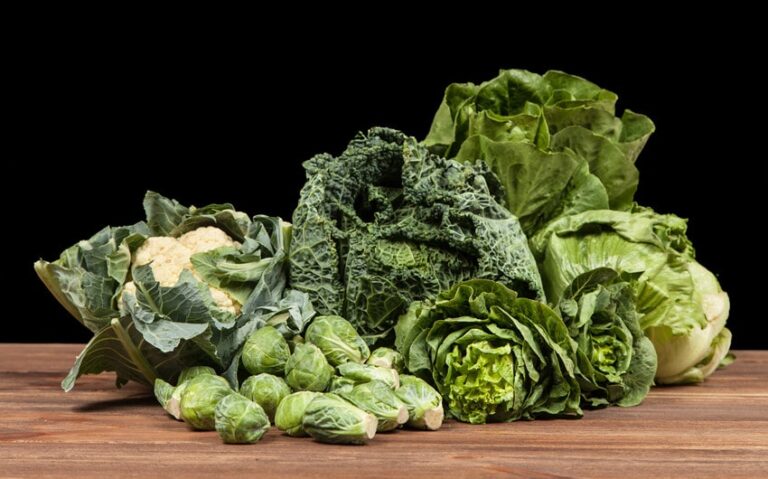16 Foods That Make Toddlers Poop and Relieve Constipation
Watching your toddler struggle with constipation can be tough. As parents, we want to ensure our little ones are comfortable and happy. A key way to help is by choosing the right foods. The good news is that there are many natural options that can ease their tummy troubles. From fruits to vegetables, adding specific foods to their diet can make a big difference. In this article, we’ll explore some of the best foods that make toddlers poop.
Foods That Make Toddlers Poop
1. Apples

- Fiber Content: Approximately 2.4 grams per medium apple.
- Serving Suggestions: Thin slices, applesauce, baked apples with cinnamon.
- Preparation Tips: Wash thoroughly and leave the skin on for added fiber.
Apples are a great source of fiber, which is essential for healthy digestion. The skin of the apple contains a good amount of insoluble fiber, which helps to add bulk to the stool and promote regular bowel movements. Additionally, apples contain pectin, a type of soluble fiber that can improve overall gut health.
For toddlers, you can serve apples in various forms such as thin slices, applesauce, or even baked apples with a sprinkle of cinnamon. Make sure to leave the skin on when possible, as it contains most of the fiber. Apples are not only nutritious but also sweet and crunchy, making them a favorite among young children.
2. Pears

- Fiber Content: Approximately 5.5 grams per medium pear.
- Serving Suggestions: Slices, fruit salad, pear puree, pear juice.
- Preparation Tips: Choose ripe pears for a softer texture.
Pears are known for their gentle laxative effect due to their high fiber and sorbitol content. Sorbitol is a natural sugar alcohol that draws water into the intestines, making stools softer and easier to pass. Pears also provide a good amount of vitamin C and copper, contributing to overall health.
You can give pears to your toddler in slices, as part of a fruit salad, or as pear puree. Pear juice can also be effective, but be mindful of the sugar content and choose options without added sugars. Pears are generally well-tolerated by toddlers and their natural sweetness makes them appealing.
3. Prunes
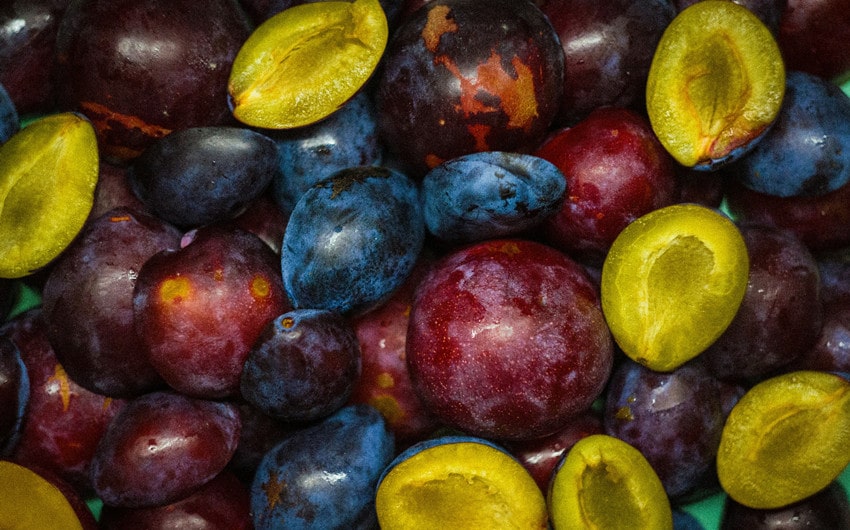
- Fiber Content: Approximately 3 grams per 5 prunes.
- Serving Suggestions: Prune puree, chopped prunes, prune juice.
- Preparation Tips: Blend prunes into a smooth puree for easy mixing.
Prunes are famous for their natural laxative properties. They are rich in fiber and contain sorbitol, which helps in bowel movements by drawing water into the stool, making it easier to pass. Prunes also contain compounds that stimulate the intestines, promoting regularity.
Prunes can be served to toddlers in a variety of ways, such as prune puree, chopped prunes mixed with other foods, or prune juice. Start with small amounts to ensure it suits your toddler’s digestive system. Prunes have a sweet taste that is usually well-received by children, making them an effective and palatable option for easing constipation.
4. Berries

- Fiber Content: Approximately 3.6 grams per cup of raspberries.
- Serving Suggestions: Fresh, mixed into yogurt, blended into smoothies.
- Preparation Tips: Rinse thoroughly and check for softness.
Berries like strawberries, blueberries, and raspberries are packed with fiber, vitamins, and antioxidants. The tiny seeds in berries also contribute to their fiber content, aiding digestion and promoting bowel regularity. Berries are rich in vitamins C and K, as well as manganese, which are important for overall health.
They can be served fresh, mixed into yogurt, or blended into smoothies. Their vibrant colors and sweet-tart flavors make them a favorite among toddlers. Additionally, berries are easy to prepare and can be enjoyed as a snack or part of a meal, providing a nutritious and delicious way to boost fiber intake.
5. Broccoli

- Fiber Content: Approximately 2.4 grams per cup (chopped).
- Serving Suggestions: Steamed, mashed, blended into soups and sauces.
- Preparation Tips: Steam until tender to avoid choking hazards.
Broccoli is a fiber-rich vegetable that can help promote regular bowel movements. It also contains sulforaphane, a compound that may protect the gut and support digestion. Broccoli is packed with vitamins C and K, as well as folate, which contribute to overall health.
For toddlers, steamed broccoli is a great option as it’s soft and easy to chew. You can also mash it or blend it into soups and sauces to make it more palatable for picky eaters. Broccoli’s slightly bitter taste can be balanced with cheese or other favorite flavors, making it a versatile and healthy addition to your child’s diet.
6. Peas
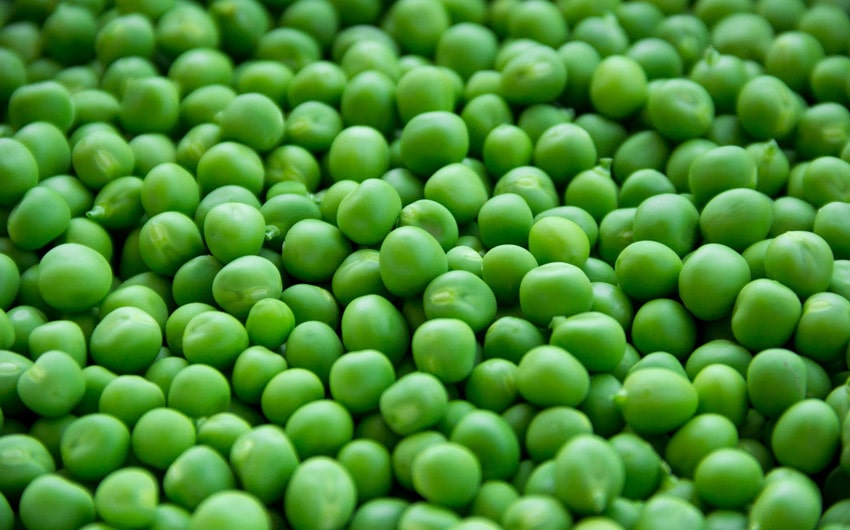
- Fiber Content: Approximately 4 grams per cup (cooked).
- Serving Suggestions: Simple side dish, mixed into pasta, pureed into soups.
- Preparation Tips: Cook until soft and mash for easy eating.
Peas are small but mighty when it comes to fiber content. They are also a good source of essential vitamins and minerals that support overall health, including vitamins A, C, K, and folate. Peas can help improve digestion and promote regular bowel movements due to their high fiber content.
They can be served as a simple side dish, mixed into pasta, or pureed into soups. Their slightly sweet taste often appeals to toddlers, making them an easy addition to meals. Additionally, peas are easy to prepare and can be kept frozen for a convenient, nutritious option that can be quickly added to various dishes.
7. Sweet Potatoes

- Fiber Content: Approximately 3.8 grams per medium sweet potato (with skin).
- Serving Suggestions: Mashed, baked, roasted, cut into small pieces.
- Preparation Tips: Bake or steam until tender.
Sweet potatoes are not only delicious but also high in fiber, especially when eaten with the skin on. They are also rich in vitamins A and C, as well as manganese, which support overall health and immune function. The fiber in sweet potatoes helps to add bulk to the stool and promote regular bowel movements.
You can prepare sweet potatoes in a variety of ways for toddlers: mashed, baked, or even cut into small pieces and roasted. Their natural sweetness makes them a favorite among young children, and they can be easily incorporated into both savory and sweet dishes, making them a versatile option for enhancing fiber intake.
8. Oatmeal

- Fiber Content: Approximately 4 grams per cup (cooked).
- Serving Suggestions: Plain, with fruit, mixed into baked goods.
- Preparation Tips: Use rolled oats for a creamier texture; avoid instant oatmeal with added sugars.
Oatmeal is an excellent source of soluble fiber, which helps soften stools and promote regular bowel movements. It is also easy to prepare and can be made more appealing by adding fruits like apples or berries. Oatmeal is rich in essential nutrients such as vitamins B1 and B5, iron, and magnesium, which support overall health.
You can serve it plain, with a bit of honey (for toddlers over one year old), or mix it into baked goods like muffins or pancakes for added fiber. The versatility of oatmeal makes it a convenient and nutritious option for boosting your toddler’s fiber intake and supporting healthy digestion.
9. Whole Wheat Bread
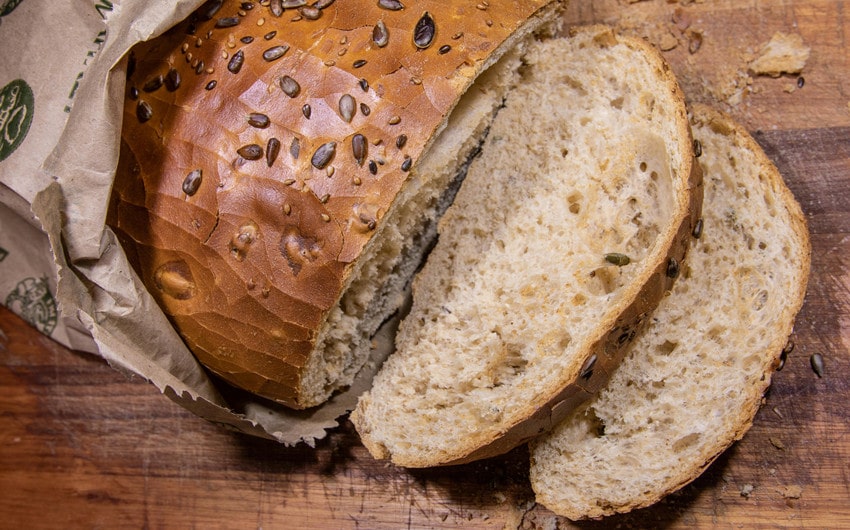
- Fiber Content: Approximately 2 grams per slice.
- Serving Suggestions: Toast, sandwiches, cut into fun shapes.
- Preparation Tips: Choose 100% whole wheat bread without added sugars or preservatives.
Whole wheat bread is a good source of dietary fiber and can help improve your toddler’s digestion. It also provides essential nutrients like B vitamins and iron, which are important for overall health. Whole wheat bread can be used in a variety of ways, such as toast for breakfast, sandwiches for lunch, or even cut into fun shapes to make mealtime more enjoyable.
Choosing 100% whole wheat bread without added sugars or preservatives ensures your toddler gets the maximum health benefits. Whole wheat bread is a simple and effective way to incorporate more fiber into your child’s diet, promoting regular bowel movements and overall well-being.
10. Brown Rice
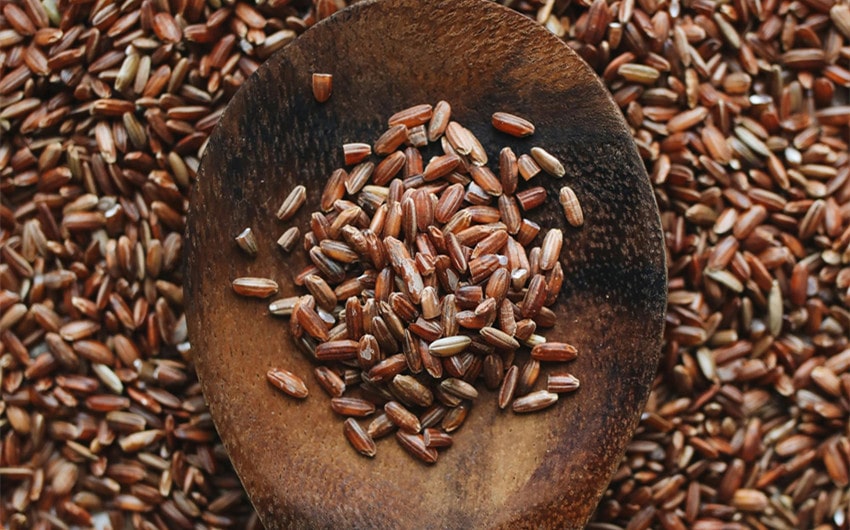
- Fiber Content: Approximately 3.5 grams per cup (cooked).
- Serving Suggestions: Mixed with vegetables, in stir-fries, as a side dish.
- Preparation Tips: Cook until tender and mix with colorful vegetables to make it more appealing.
Brown rice is a whole grain that retains its outer bran layer, providing more fiber than white rice. This fiber helps to regulate bowel movements and improve digestion. Brown rice is also a good source of essential nutrients such as B vitamins, magnesium, and phosphorus, which support overall health.
Brown rice can be served as a side dish, mixed with vegetables, or included in stir-fries. Its slightly nutty flavor and chewy texture can be made more appealing to toddlers by adding their favorite vegetables or proteins. Incorporating brown rice into your toddler’s diet is an excellent way to boost their fiber intake and support healthy digestion.
11. Watermelon

- Serving Suggestions: Small cubes, blended into a smoothie, as a refreshing snack.
- Preparation Tips: Cut into bite-sized pieces for easy handling.
Watermelon is a hydrating fruit that helps keep the digestive system functioning smoothly. Although it has a lower fiber content, its high water content can help prevent constipation and keep stools soft. Watermelon is also rich in vitamins A and C, which support overall health and immune function.
Watermelon can be served in small cubes as a refreshing snack or blended into a smoothie for a hydrating treat. Its natural sweetness makes it an attractive option for toddlers, and its high water content helps ensure they stay hydrated, which is essential for maintaining healthy digestion.
12. Cucumbers
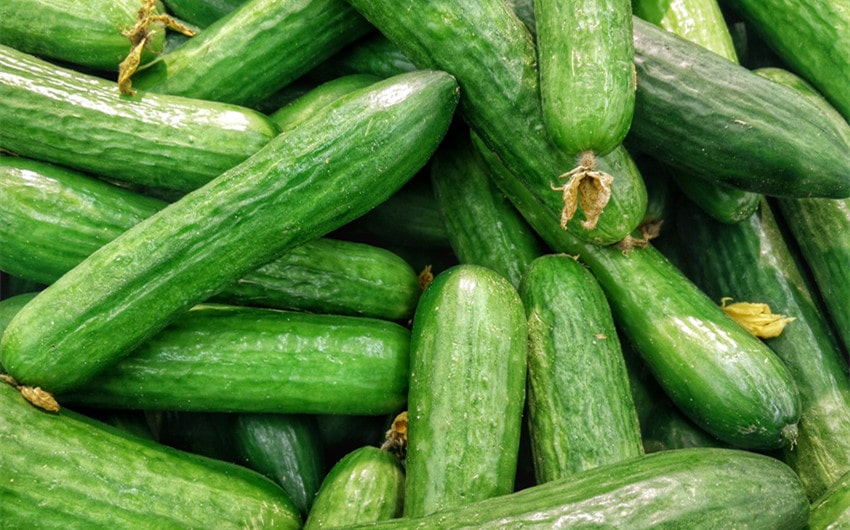
- Serving Suggestions: Sliced, in salads, as cucumber sticks.
- Preparation Tips: Peel if necessary and slice thinly for easy chewing.
Cucumbers are another hydrating food that can aid in digestion. While they are not high in fiber, their high water content helps to keep the digestive system hydrated and functioning well. Cucumbers are also a good source of vitamins K and C, as well as potassium, which support overall health.
They can be served sliced, added to salads, or cut into sticks for a crunchy snack. Cucumbers are refreshing and easy to chew, making them a good choice for toddlers. Incorporating cucumbers into your toddler’s diet can help ensure they stay hydrated and support healthy bowel movements.
13. Oranges

- Fiber Content: Approximately 3 grams per medium orange.
- Serving Suggestions: Orange slices, orange juice (with pulp), in fruit salads.
- Preparation Tips: Peel and segment for easy handling.
Oranges are rich in both fiber and vitamin C, making them great for digestive health. The fiber in oranges helps to add bulk to the stool, while the vitamin C helps to boost the immune system. Oranges also contain other essential nutrients like folate and potassium, which support overall health.
They can be served in slices, as juice (preferably with pulp), or mixed into fruit salads. Their sweet and tangy flavor is usually a hit with toddlers, making them a popular and nutritious choice. Including oranges in your toddler’s diet can help promote regular bowel movements and overall digestive health.
14. Yogurt

- Serving Suggestions: Plain yogurt, mixed with fruits, in smoothies.
- Preparation Tips: Choose plain yogurt with live cultures and avoid those with added sugars.
Yogurt is a great source of probiotics, which are beneficial bacteria that help maintain a healthy gut flora. While yogurt itself doesn’t contain fiber, it can help improve digestion and regularity by supporting a healthy balance of gut bacteria. Yogurt is also rich in essential nutrients like calcium, protein, and vitamins B12 and D, which support overall health.
Plain yogurt can be mixed with fruits or added to smoothies for a nutritious snack. It is important to choose plain yogurt with live cultures and avoid those with added sugars or artificial flavors. Yogurt’s probiotic content makes it a valuable addition to your toddler’s diet for promoting digestive health.
15. Avocado

- Fiber Content: Approximately 7 grams per medium avocado.
- Serving Suggestions: Mashed, sliced, in sandwiches or salads.
- Preparation Tips: Ensure avocados are ripe and soft for easy mashing.
Avocado is rich in healthy fats and fiber, making it an excellent food for promoting digestion. Its creamy texture is easy for toddlers to eat, and it can be served mashed, sliced, or spread on toast. Avocado is also a good source of essential nutrients like vitamins E, K, and B6, as well as folate and potassium, which support overall health.
Avocado can also be mixed into sandwiches or salads, providing a nutrient-dense option that supports healthy bowel movements. Its mild flavor and versatility make it a popular choice for adding fiber and healthy fats to your toddler’s diet.
16. Olive Oil

- Serving Suggestions: Drizzled over vegetables, mixed into purees.
- Preparation Tips: Use extra virgin olive oil for the best quality and flavor.
Olive oil can help with constipation by lubricating the digestive tract, although it does not contain fiber. It is also a good source of healthy fats and antioxidants, which support overall health. Drizzle olive oil over vegetables or mix it into purees to add a healthy fat component that can aid in smooth bowel movements.
Using extra virgin olive oil ensures the best quality and flavor. While olive oil should be used in moderation, it can be a beneficial addition to your toddler’s diet to help maintain regularity and support digestive health.





